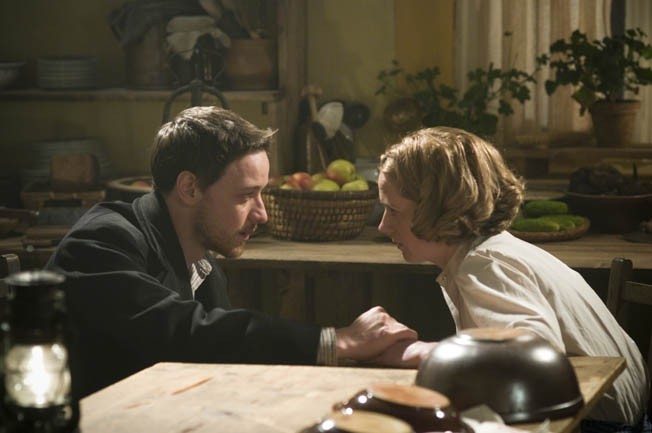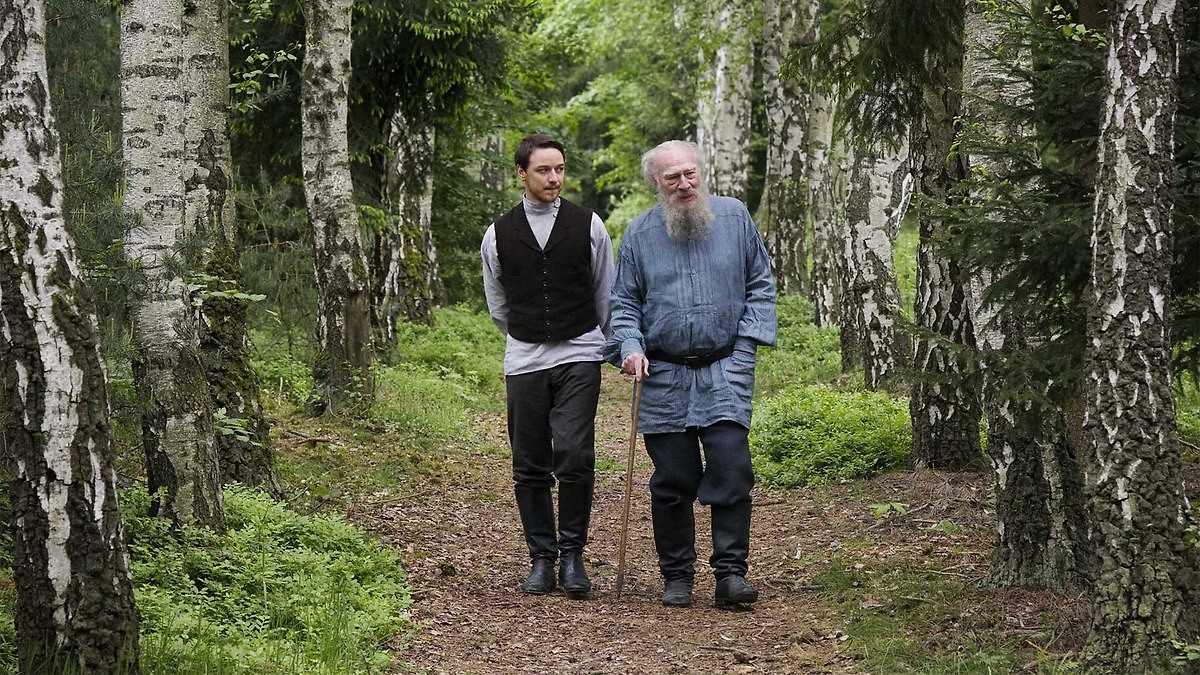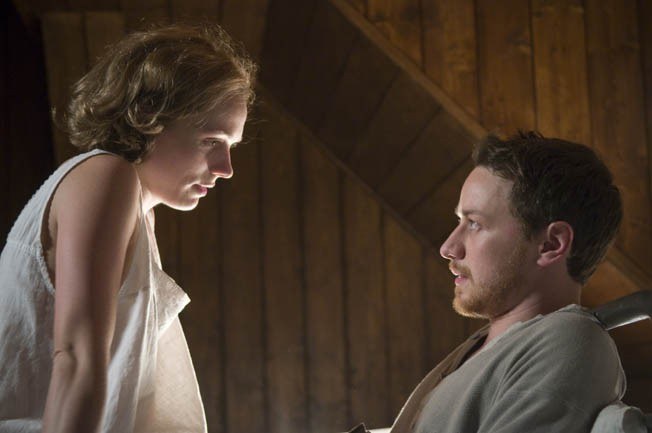The Last Station (2009)

“The Last Station” (2009) is a biographical drama film directed by Michael Hoffman, based on the 1990 novel of the same name by Jay Parini. The film focuses on the last year of the life of the legendary Russian author, Leo Tolstoy, and the complex relationships surrounding him as he faces death. Set against the backdrop of Tolstoy’s philosophical and personal struggles, the movie explores his final days, the battles for his legacy, and the people who were closest to him. With a stellar cast including Christopher Plummer, Helen Mirren, James McAvoy, and Paul Giamatti, the film provides a compelling and emotional look at the complexities of Tolstoy’s life.
The story is primarily told through the eyes of several key characters, including Valentin Bulgakov (James McAvoy), a young idealistic assistant to Tolstoy, who is deeply inspired by the author’s spiritual teachings. Valentin’s narrative serves as a lens through which the audience experiences the turmoil surrounding Tolstoy’s final days. The film explores his conflicted role in the internal struggles at Tolstoy’s estate, where competing interests over the author’s intellectual legacy and personal will cause tensions between his followers and family members.
At the heart of the film is the intense relationship between Tolstoy (Christopher Plummer) and his wife, Sophia (Helen Mirren). Their marriage, which spanned over half a century, was marked by both deep love and intense philosophical conflict. Sophia, who had been Tolstoy’s devoted partner, struggles with the changes in his beliefs in his final years, especially as he seeks to give away his estate and fortune to the Russian government. Her passionate efforts to protect her husband’s legacy and ensure that their children are cared for contrast with Tolstoy’s desire to live a simple, ascetic life, detached from material wealth.
As the film progresses, tensions rise within Tolstoy’s household, especially with the involvement of his followers, including the charismatic and ambitious doctor, Dmitri (Paul Giamatti), who has his own ideas about Tolstoy’s legacy. These inner conflicts are compounded by the author’s deteriorating health and his desire to leave behind a moral and spiritual revolution. The film delves deeply into the philosophical clash between Tolstoy’s vision of selflessness and the reality of the people who surrounded him, each with their own agenda.

Visually, “The Last Station” captures the beauty and simplicity of Tolstoy’s rural estate in Russia, reflecting the deep connection between the author’s life and his surroundings. The cinematography is rich and poignant, effectively conveying the somber tone of the film. The rustic, often cold landscapes mirror the emotional isolation that Tolstoy feels as he nears the end of his life. The production design, particularly the re-creation of Tolstoy’s home and the Russian countryside, adds to the authenticity and emotional weight of the narrative.

“The Last Station” ultimately explores the complex dynamics of love, loyalty, and legacy. The film illustrates the contrast between Tolstoy’s spiritual idealism and the very human struggles of those around him. It raises important questions about the cost of greatness, the sacrifices made for intellectual pursuits, and the personal price of living a life of principle. The emotional depth of the performances, especially from Christopher Plummer and Helen Mirren, allows the film to reflect the intricacies of Tolstoy’s character and his final years with sensitivity and grace.

In conclusion, “The Last Station” is a deeply reflective and moving film about one of history’s greatest writers. Through its compelling performances, historical context, and exploration of human relationships, the film offers a fascinating portrait of Leo Tolstoy in his final days. It is a meditation on the complexities of life, death, and legacy, shedding light on the personal struggles of an iconic figure whose influence has shaped literature and philosophy for generations.











